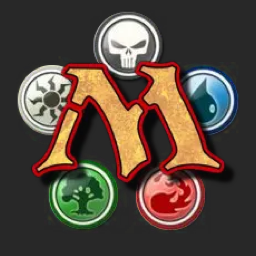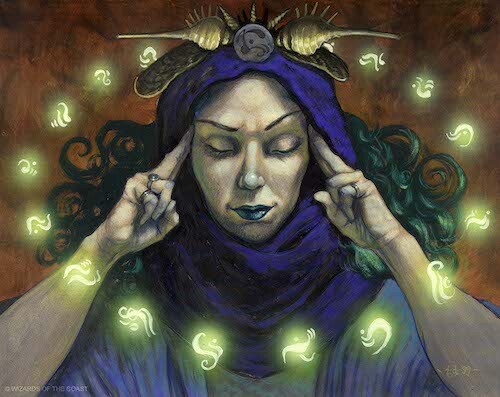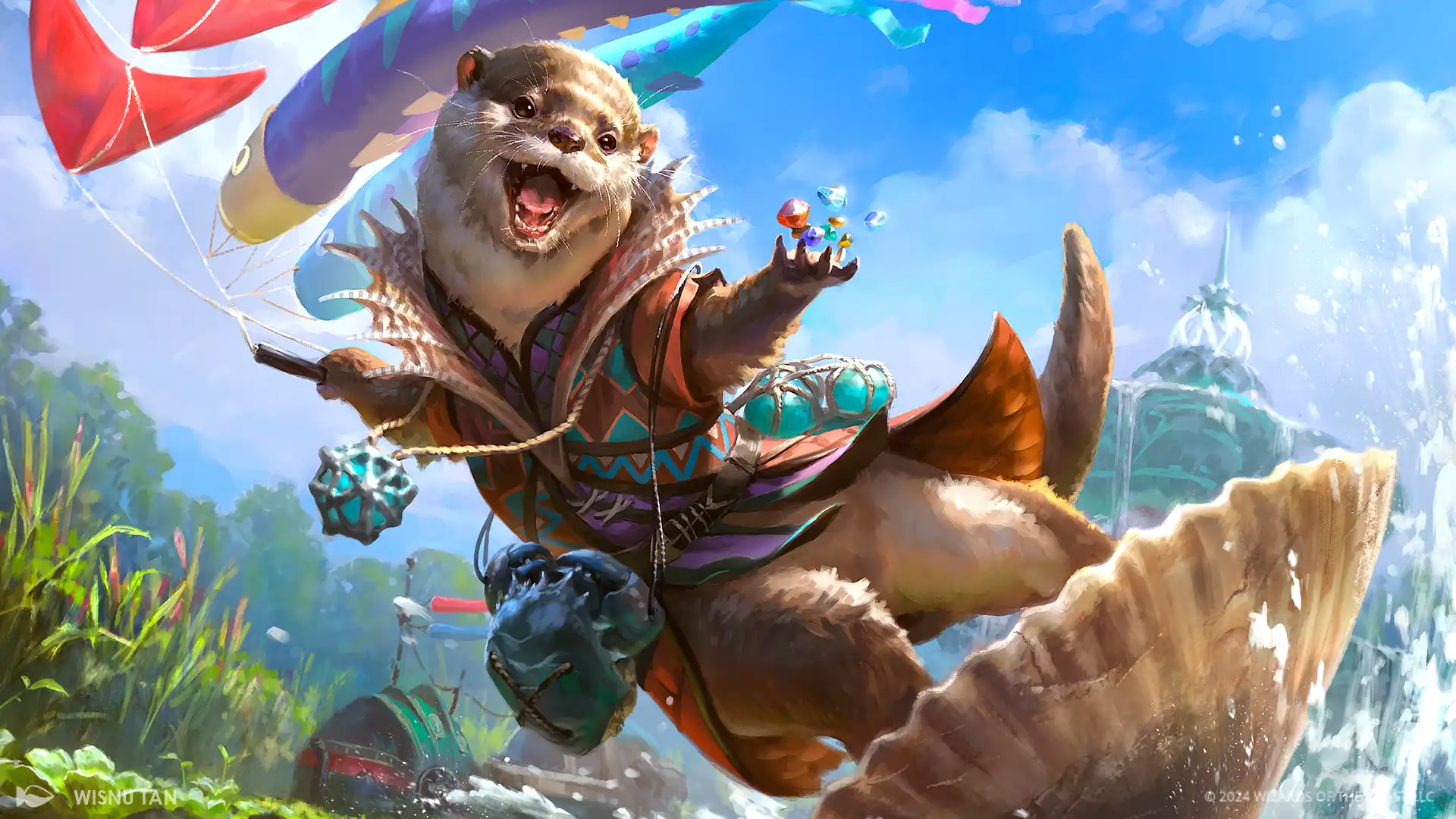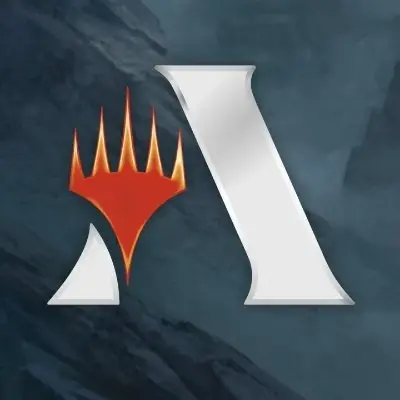Mike
Started playing Magic with Portal and Mirage. Currently play off-and-on Historic and Commander.
I love collecting older cards, and I’ve put together a full Portal set cube and about 20 thematic tribal decks with cards all from 2012 and earlier.
- 63 Posts
- 204 Comments
I missed this post when it hit, but saw the video pop up in my suggested feed. This was so cool and I never knew this little bit of history.
This is really incredibly sad. I learned about this yesterday and still can’t really wrap my head around it. I remember finding out about JBro 5 or 6 years ago by seeing “TeamJbro” constantly at the top of the Vintage Cube Draft leaderboard on MTGO when I would watch people streaming it. I looked up his name and was so happy to see that he was also regularly streaming.
I watched him regularly for years, also admiring him and how incredible his energy was and how happy he always seemed to be. Over the last few years I absolutely noticed his stream taking a more non-interactive, distracted turn. He started streaming much less and less, and when he did it looked like he was not well. I always just thought of it as the tiredness from having 4 young kids, or from his political career and all of the time and energy that takes.
This news is just so counter to everything I ever thought about him but that just shows how you don’t really know anything about someone unless you’re with them, spending regular time in person, or having regular real conversations with them. We only ever had this image of JBro, but I can’t even imagine what kinds of things he was dealing with mentally or emotionally or what.
I feel so incredibly sad, to lose this wonderful person but also for what will be an impossible thing to overcome and try to explain for the family he leaves behind. Those little kids won’t have that wonderful dad anymore, and will have to forever find some way to make sense of this if they ever can.
This is just so sad. I and so many others will miss you JBro. You were an amazing person, just through and though, and there was so much positivity that I added to my life that I learned from you. There is so much about you that I have taken into my life and I’m so happy for that.
ETA - 1 final Bless Up for you JBro.
I think this is a fantastic idea and I agree regarding keeping the good memories. I put together a Portal cube a few years ago and have now started to put a collection of Tribal decks together in each color. These are all only including cards Pre-Horizons as well.

 9·23 days ago
9·23 days agowhat is the actual player retention rate from these sets?
I would love to see this too. It’s like a company that doesn’t care about retaining any customers, just using the new customer data to show growth. The bottom falls out of that because any company/game/etc needs a core group of repeat and engaged long-term customers/users to keep it alive. That same group kept Magic alive for 30 years and they’re now being told the game isn’t for them anymore.
I think they truly think of Magic like Fortnite, and just as a joke, but in that they don’t really care if someone plays for 2 weeks or 2 years, they just want as many people in the “system” as possible, thinking they will come and go throughout their lives. Maybe they see a new set that interests them and they come back in for a few months or years.
I don’t think they care about or want to support the interests of players who play EVERY set and try to collect every card. I think that ship has sailed and it’s now just all about casting a much wider net of peripheral customers and perhaps that can keep them showing growth for a while.
However, this all hinges on a couple very flimsy assumptions – (1) that UB sets will never lose appeal as In-Universe sets supposedly have, and (2) that there are enough of this type of customer-player. What happens when UB sets are scraping tier 2 and tier 3 properties and sales go down? What happens when there’s no more in-store in-person standard at all? At what point do they have to scale this back and return to “Classic Magic” to regain what was lost and try to grow the company again? What happens after 2 consecutive down-growth quarters for WoTC?

 10·23 days ago
10·23 days agoThis is really well written and definitely echoes exactly what I’ve been feeling. Such a frustrating time right now.
No Pioneer RCQ season is the most insane thing to me. Just starts to get really good with the Amalia and Sorin bans, good enough to convince me to buy into the format after staying out of constructed for 6 years and then this rug pull. No clue what they’re thinking here.
most players I know were into at least partially to avoid UB sets
This was why I bought in. I don’t want a rotating format and this was the only non-rotating format without UB.
I didn’t read the whole thing, mostly because I’m kinda scared to, but if this means UB sets are floating in through Standard and Pioneer than I think I’m done with the game for a little while. Pioneer was the last thing I was interested in and just bought into it in paper simply because it wasn’t on Arena and wasn’t part of the UB system but this changes that entirely for me. I don’t know what the heck they’re thinking here.

 4·24 days ago
4·24 days agoYea I agree w/ all that. I was actually very excited and bought into LTR but these future UB sets are just not close enough to the in-game lore imo.
DSK seems like it has some fervent draft fans but I also think it’s not a very interesting or fun set. The set’s setting and lore also seem at odds with Magic historically.

 6·25 days ago
6·25 days agoI don’t think it’s the volume of sets that will suffer, but the quality of the set design in those sets. I feel like if resources are allocated more towards the UB cards we’ll see all the cool and interesting mechanics and cards printed in those sets and then Standard becomes the afterthought.
Thank you for posting this, I think I definitely would have forgotten this was starting tomorrow.

 7·25 days ago
7·25 days agoI think this is just unfortunately where the game is going. They’ll put more and more money and set design effort into these and less into the standard sets.
I just really am not very interested nor do I see what the crossover appeal is for the Marvel Universe. These cards look kinda neat but Marvel already has Snap as a game. Also, is this basically a preview of the upcoming two Marvel UB sets that are to be released?

 3·2 months ago
3·2 months agoOcculus is honestly taking off right now. Unfortunate that this wasn’t printed at rare.

 12·2 months ago
12·2 months agoI think this was the most important part of why Commander grew so big in the first place. Having WoTC/Hasbro decidedly NOT involved in the governing of the format was what allowed it to become and stay fun.

 5·2 months ago
5·2 months agoYeah I completely agree. There is so much context with all the cards that I don’t know how they do this. It’s really just four different ban lists they’re now managing. And that I think sucks so much fun out of the decks that it almost becomes what’s the point even.

 9·2 months ago
9·2 months agoHere’s the idea: There are four power brackets, and every Commander deck can be placed in one of those brackets by examining the cards and combinations in your deck and comparing them to lists we’ll need community help to create. You can imagine bracket one is the baseline of an average preconstructed deck or below and bracket four is high power. For the lower tiers, we may lean on a mixture of cards and a description of how the deck functions, and the higher tiers are likely defined by more explicit lists of cards.
Ok… I’m listening 🤔
In this system, your deck would be defined by its highest-bracket card or cards.
This now becomes an eternal battle over which cards are in Tier 3 and which cards are in Tier 4 imo.
For example, if Ancient Tomb is a bracket-four card, your deck would generally be considered a four. But if it’s part of a Tomb-themed deck, the conversation may be “My deck is a four with Ancient Tomb but a two without it. Is that okay with everyone?”
This seems kinda gnarly to me. Perhaps it can work though by farming this decision out to every single play group.

 1·2 months ago
1·2 months agoTy that is a good explanation of that, that makes sense

 2·2 months ago
2·2 months agoSad but necessary for the Professor to spend the first 7 minutes telling magic players to not harass or threaten people online anonymously.
But onto the video - I have to disagree with the Professor entirely on this:
[08:57] I was much more in favor of reasonably reprinting these cards so that they became affordable
He first says that Commander will be more fun in 3 months, and then says he thinks WoTC should have just re-printed the problem cards to make them more available. I can’t understand how any entrenched player could believe this. Especially given just how long and how many reprints were needed for Sol Ring to get the cost down.
But beyond that, if you first agree that the format is better without the cards, how and why are you suggesting to first reprint them to oblivion? There is a clear problem with fast mana in commander (and tutors and other things) and there’s no amount of reprinting that will ever solve this.
He also says that Jeweled Lotus should never have been printed, but then says it should not have been banned? And instead just printed MORE? A card that should never have been printed should now be printed more? This makes no sense, and it’s inconsistent, which is very out of character for someone who approaches things very logically.
Also, the comparisons to other formats like Pioneer make no sense to me. There is no comparison with these formats, Commander is completely unique compared to competitive 60-card formats. It’s not even apples and oranges, it’s apples and baseballs.
Finally, his suggestion to put the cards on a watchlist as a waiting period does a huge disservice to players who don’t follow news closely. It would create a cash-out event for entrenched players and leave non-entrenched players as the bag-holders. That is nuts to me, and this is yet another reason why I agree with the path they took here.

 3·2 months ago
3·2 months agoCrazy how much they raised so far. As of now it’s at $30,000 on a $3,400 original goal.




I personally think all of these cards should be re-printed into regular “Universes Within” sets but I get the feeling that they’ll just scatter them into the 3 Marvel sets coming out.